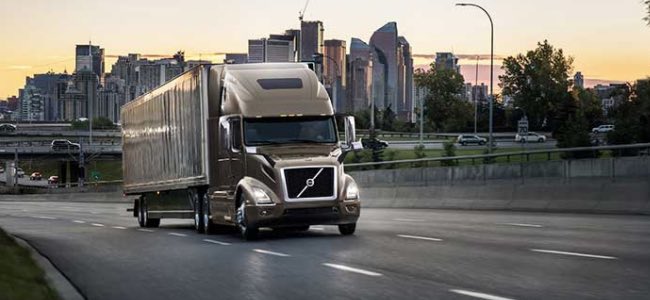The rise of ecommerce has catapulted electric vehicles to prominence. Concern about greenhouse gas emissions is driving the move away from diesel delivery vehicles towards trucks and vans using alternative power sources. Electric vehicles with a range of up to 150 miles are ideally suited to “last mile” deliveries, those with a limited radius.
The State of Washington has enacted ground-breaking legislation that sets a target for all model year 2030-or-later passenger and light-duty vehicles sold there to be electric. The new law is the most aggressive in the U.S. for moving to an all-electric future and puts Washington five years ahead of California’s 2035 mark. Fifteen other states, plus Washington, D.C., require all new trucks, vans, and buses to be electric by 2050.
EV Manufacturers
Auto manufacturers are competing with start-ups to produce the most efficient and “smart” electric delivery vehicles. Volvo, Freightliner, Tesla, and China’s BYD are among the companies producing heavy-duty semi-trucks for regional shipments. Volvo’s VNR design, engineered in Virginia, will have a range of 150 miles before needing a recharge of one hour.

Volvo’s VNR semi-truck will have a range of 150 miles before needing a recharge of one hour. Image: Volvo.
Ford and GM are competing to launch smaller electric vans for last-mile delivery. Ford will roll out an all-electric version of its Transit van in 2022, and GM’s BV1 is slated for production later this year.
GM has launched a subsidiary, BrightDrop, to focus on last-mile products — vehicles, e-pallets, software. GM Chairman and CEO Mary Barra stated, “We are building on our significant expertise in electrification, mobility applications, telematics, and fleet management, with a new one-stop-shop solution for commercial customers to move goods in a better, more sustainable way.”
BrightDrop has reportedly received interest from multiple shipping and delivery services, with a firm commitment from FedEx.
A UPS subsidiary, UPS Ventures, is investing in Arrival, a U.K.-based manufacturer of EVs with advanced driver-assistance systems. UPS is buying 10,000 units from Arrival over the next four years for its North American and European fleets.
Rivian Automotive is a California-based start-up with direct backing from Amazon.
Amazon
According to Morgan Stanley analyst Adam Jonas, Amazon could become the world’s single biggest producer of CO2 emissions after China’s coal plants. However, Amazon claims it delivered in 2020 more than 20 million packages in electric vehicles across North America and Europe.
The company plans to deploy 100,000 additional EVs by 2030, sourced from Rivian. It has started to road-test them in Los Angeles and San Francisco and aims to be in 16 U.S. cities by the end of 2021.
Amazon is working with Rivian to test the vehicle’s performance, safety, and durability in various climates and geographies. The current fleet of vehicles being tested was built at Rivian’s facility in Plymouth, Michigan, and can drive up to 150 miles on a single charge.




